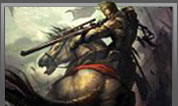You’ve said before that you wouldn’t write about the war in this universe between the Faith and the Unity (however much we may want you to!) Given that, can you tell us more about the war? What are the philosophies of the two sides and why are they fighting? Are the Rationalists less gender-equal than the Faith or is that a perception? Can you tell us any more about Sybra and the other planets involved?
My late (and excellent) editor David Hartwell told me more than once that the beginnings of events in the world of Recluce should always retain an element of mystery. While I’ve already revealed more than he would have preferred, I do feel that his basic point was valid. Also, anything that I reveal that’s not in the books restricts future possibilities. I will say that Sybra is more gender egalitarian than the Rationalist culture, simply because, in my observation, societies dealing with winter-like climates tend to have less gender bias. Not always, but more often than not.





